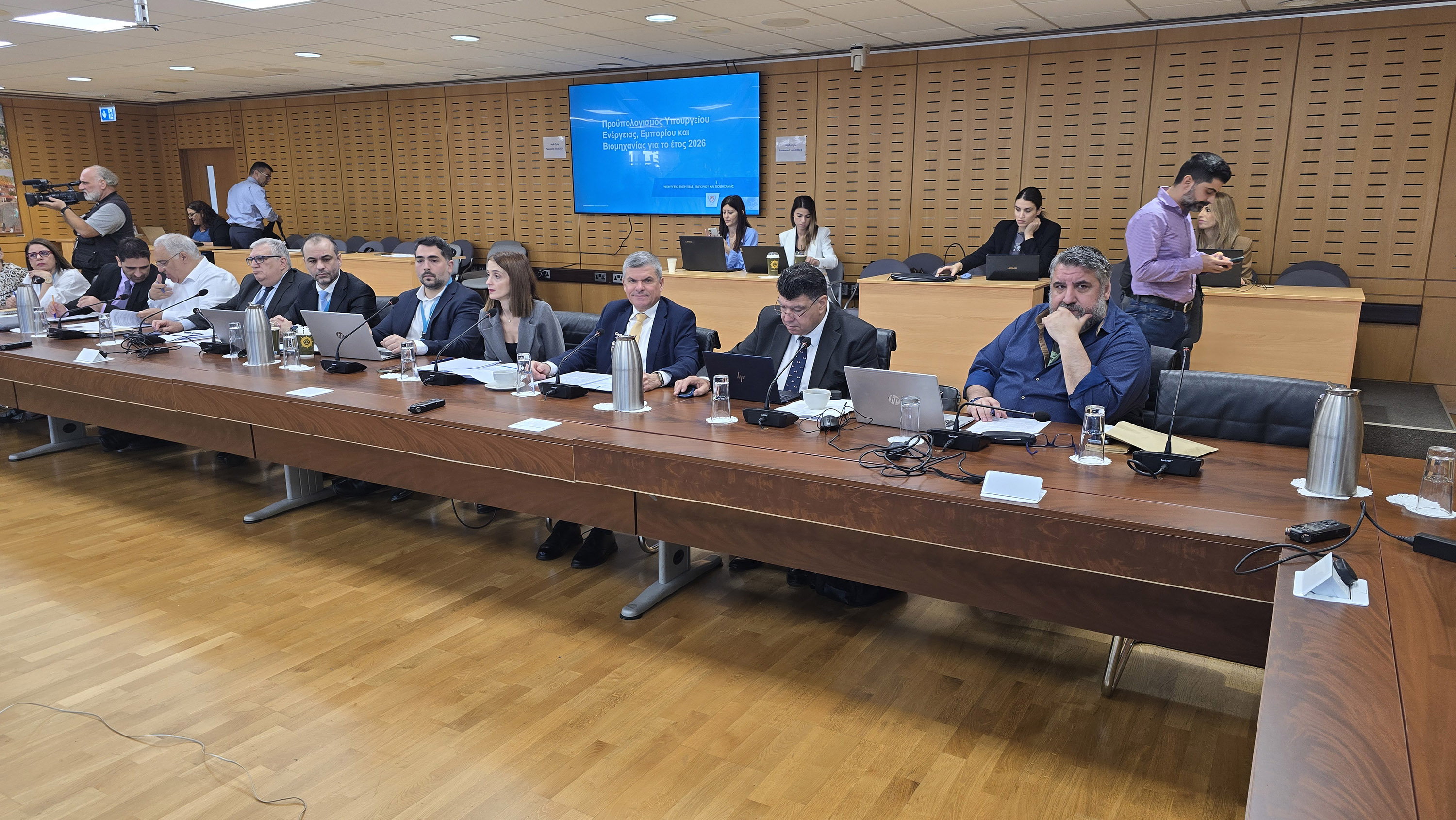Tempers flared among members of parliament over the matter of the Great Sea Interconnector on Friday as the House finance committee discussed the energy ministry’s budget.
The flashpoint came after Energy Minister George Papanastasiou had highlighted the fact that the European public prosecutor’s office has launched an investigation into the project.
Disy MP Kyriacos Hadjiyianni demanded to know the identities of the shareholders of EuroAsia Interconnector Ltd, the Cypriot company which quit the project in October 2023 and handed over its running to Greece’s independent transmission system operator, Admie.
In response, Papanastasiou said he did not know, given that EuroAsia Interconnector “had been operating since the time of the previous government”.
This answer did not satisfy Hadjiyianni, who asked the same question again, before Diko MP Chrysis Pantelides said that former foreign minister and Disy member Ioannis Kasoulides was the chairman of EuroAsia Interconnector Ltd’s strategic council.
At this point, fellow Disy MP Nikos Sykas expressed his distaste at the situation, asking committee chairwoman and Diko MP Christiana Erotokritou to “bring order to the proceedings”, and saying Pantelides should not have explicitly named individuals.
Erotokritou and Sykas then engaged in a heated discussion, with the former declaring that “this committee is not a coffee shop!” and the latter replying that “you are turning it into a coffee shop!”.
He later retracted his remark.
When order was eventually restored, Papanastasiou told the MPs that the government supports the project, and that he has been authorised by cabinet to sign a “framework of understanding” with the Greek government over the matter.
He added that he will next meet European energy commissioner Dan Jorgensen and his Greek counterpart Stavros Papastavrou over the matter on November 12.
“The commissioner, on his own initiative, said he wants to get to know these challenges, these problems which are being caused in the project, and make efforts to resolve them,” he said.
Away from the matter of the interconnector, he said the government “does not accept” the European Union’s demand for the return of €67.2 million handed out in grants for the construction of the liquefied natural gas (LNG) terminal at Vasiliko.
The commission gave the Republic of Cyprus until November 6 to return the money, and Papanastasiou said the government has not only lost the €67.2m but also “the rest that we would have received” from a total grant of €101m.
He then moved on to the floating storage and regasification unit (FSRU) Prometheas, which is currently in Malaysia as part of the process of its certification for use.
That process, he said, will be “completed this month”.
“It is certified as an FSRU, under two conditions, and the ship will have to decide in which direction it will sail. This will depend greatly on the report that [natural gas infrastructure company] Etyfa will receive from Technip on what discrepancies it sees between the design and implementation of the infrastructure project in Vasiliko,” he said.
Technip is the company hired as a consultant by Etyfa.
The next subject was the Aphrodite natural gas field, which is located in Block 12 of Cyprus’ maritime exclusive economic zone (EEZ), with plans afoot for natural gas from it to be transported to Egypt for liquefaction before being exported.
Seabed surveys to find a sinking point for the pipeline which will take natural gas from Cyprus’ EEZ to Egypt for liquefaction began in June, with the initial aim being for natural gas from the Aphrodite gas field to be taken to the Segas LNG terminal in the Egyptian port city of Damietta.
Papanastasiou said efforts to find that sinking point will be completed by the end of November, with it hoped that a final investment decision over the field will be reached by the end of this year.
Earlier this year, an agreement which, according to the Cypriot government, established “the framework for the effective commercialisation” of the gas in the field was signed by the governments of Cyprus and Egypt, as well as American multinational corporation Chevron, Israeli energy company NewMed Energy, and the BG Group, which is owned by Royal Dutch Shell.
He then spoke about the Kronos gas field, located in Block 6 of Cyprus’ EEZ, and told the committee that there are “agreements to channel gas from Kronos” through infrastructure used to transport gas from Egypt’s nearby Zohr gas field to Damietta for liquefaction.
It is gas from Block 6 which Egypt’s Petroleum Minister had earlier said will “be ready in 2027 for delivery to Europe”.
On this matter, Papanastasiou said the government is “one step closer to selling Cypriot natural gas to interested buyers”, and that a final investment decision from the consortium comprising French multinational corporation Total and Italian energy company Eni is expected either at the end of this year or the start of next year.
The energy ministry’s budget amounts to over €118m, with development expenditures exceeding €68m and operating expenditures exceeding €50m.






Click here to change your cookie preferences